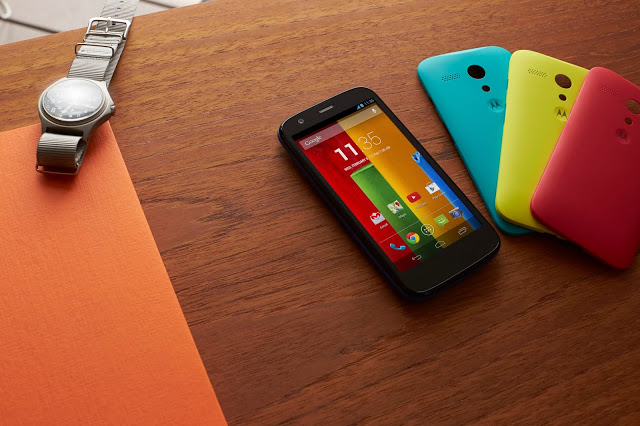Google Sells Motorola To Lenovo For £1.76bn But Retains Patents

Google sells Motorola after just 19 months, saying it needs to focus on Android
Google has sold Motorola Mobility to Lenovo for $2.91 billion (£1.76bn) just 19 months after the search giant completed a $12.5 billion (£7.58bn) takeover of the US smartphone manufacturer. Crucially, it will retain the vast majority of the patents it acquired in the deal.
Larry Page, Google CEO, says the acquisition of the patents was an important move for the Android platform, but says the company’s inability to devote all of its resources to smartphone development would hinder Motorola’s prospects in a “super competitive” market.
“Motorola’s patents have helped create a level playing field, which is good news for all Android’s users and partners,” Page says, adding that Android is the company’s main priority, and will continue to use the portfolio to “defend the entire Android ecosystem.”
Lenovo Motorola
 During its short spell under Google’s ownership, Motorola launched two major smartphones, the customisable, US-assembled Moto X and the low-cost Moto G. However its smartphone operations and future product roadmap will now transfer to Lenovo, along with 2,000 patents and a licensing agreement for the ones Google is retaining.
During its short spell under Google’s ownership, Motorola launched two major smartphones, the customisable, US-assembled Moto X and the low-cost Moto G. However its smartphone operations and future product roadmap will now transfer to Lenovo, along with 2,000 patents and a licensing agreement for the ones Google is retaining.
“Lenovo has the expertise and track record to scale Motorola into a major player within the Android ecosystem. They have a lot of experience in hardware, and they have global reach,” says Page. “In addition, Lenovo intends to keep Motorola’s distinct brand identity—just as they did when they acquired ThinkPad from IBM in 2005.”
According to recent figures published by IDC, Lenovo is the fifth largest smartphone manufacturer in the world, but the majority of its sales are in China. It has long been linked with a move for a western manufacturer, and apparently tried to buy BlackBerry, while it also announced to the Hong Kong stock exchange last year that it was involved in preliminary talks for a possible smartphone joint-venture.
However it has now turned its attention to Motorola and in doing so has gained a recognised brand name as well as a foothold in the US, Latin American and European markets.
“The acquisition of such an iconic brand, innovative product portfolio and incredibly talented global team will immediately make Lenovo a strong global competitor in smartphones,” says Yang Yuanqing, chairman and CEO of Lenovo. “We will immediately have the opportunity to become a strong global player in the fast-growing mobile space.”
Analysts approved of Google’s reasons for the sale. “Google creates a much simplified business environment by divesting itself of Motorola Mobility,” said Ian Fogg of IHS Technology. “It removes the channel conflict with other Android smartphone makers because Google will no longer have its own competing smartphone hardware division. Like Apple, Nokia, and Palm before it, Google has failed to balance the competing business demands of distributing operating systems while also making hardware. Where those companies chose to downplay their OS licensing business in favour of their own hardware play, Google did the opposite and sacrificed Motorola.”
Follow the history of Lenovo with our quiz!